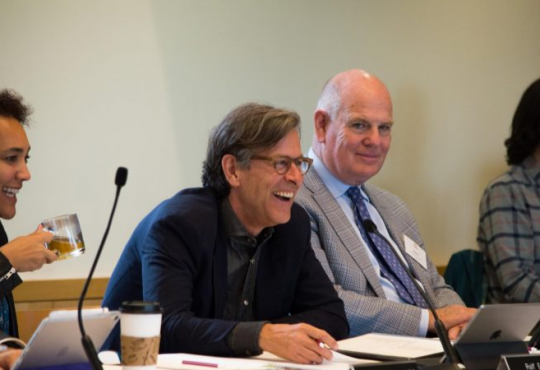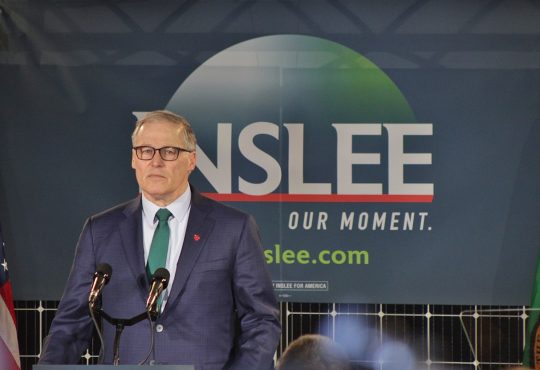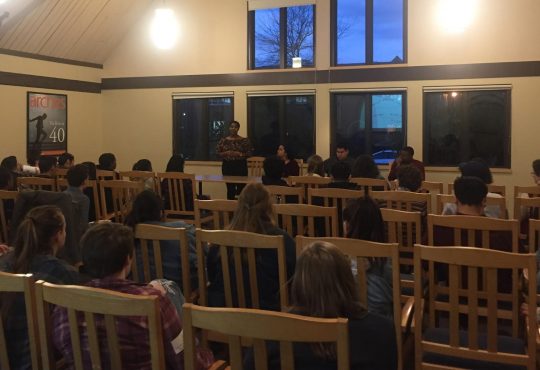In less than a week, the ASUPS Senate not only overruled a presidential veto, held an emergency meeting, broke their own procedural rules, and passed a resolution supporting a controversial bill in the state legislature seeking to close Washington state’s only coal-fired power plant, but it emerged feeling accomplished and confident for the future.
The aptly named “Beyond Coal” resolution that initiated this unprecedented discussion of student body politics was finally passed via a 6-3 vote in favor of overruling of President Dan Miller’s veto at the formal Senate meeting on Feb. 17.
“The issue is not really about the Trans Alta Company or coal; it is about whether or not the Senate should be making resolutions in support of, or against, an issue,” Marta Palmquist-Cady, the Senate representative of the Dean of Students.
In this case, the proposal for support came from Student for a Sustainable Campus, an ASUPS club.
The club brought over 270 signatures from the student body showing support for the cause. Whether or not ASUPS should be making such political statements brings up the question of what role should student government play on supporting larger political issues.
The Feb. 17 decision took a definitive stance on that core issue, with the majority of senators arguing for a more expansive role of the legislative branch. The function of the ASUPS senate has almost exclusively been allocating funding for student clubs. This political resolution and the precedent established sought to change that singular role. According to Senate Chair Erin Jamroz, the Senate has the right and ability to define what their actions are.
“I believe that Senate’s role is to give the students a voice and to give them a say in what happens and the running of their school,” Senate chair Erin Jamroz said. “It is the job and sole purpose of this Senate to represent our student body.”
Other members of the Senate and President Miller believe that ASUPS should play a smaller role on off-campus political issues. In the formal reasoning of his Veto, Miller stated that “my veto of the Washington ‘Beyond Coal’ Resolution did not arise out of opposition to the Resolution itself, but to the Constitutional, precedent-setting, and procedural issues associated with its rapid passage through Senate.”
For Miller, passing the resolution sets a precedent that “has the potential to alienate members of the student body who are not represented in the majority.” The entirety of Miller’s justification is posted on Facebook in an event “Emergency Meeting of the ASUPS Senate.”
Senior Senator Jordan Lane echoed similar sentiments during the emergency meeting on Feb. 14, which was held per Senate rules to discuss President Millers’ veto.
“I think Senators are elected on the grounds that Senate deals with internal, student issues. I think this is overstepping what the average student is thinking about when voting for their representative,” Lane said.
Voter participation was one of the issues that cast doubt on the Senate’s legitimate ability to pass this type of resolution, as some Senators were elected as write-in candidates with only single digit votes. If a Senator only received 7 students’ votes, do they truly represent the student body?
According to Jamroz, that is an issue to be solved by the Senate and the student body together.
“Whether you were elected by half the students or 8 students, you were elected. By students choosing not to run or not to vote, they’re leaving it even more up to their senators,” Jamroz said.
Off-Campus senator and write-in Pieter Verhaar agreed.
“I think it says something that students took the initiative to write us in, it is not like we’re random students. I also think that a lot of what Senate is is discussing these issues, and most of the decisions we make come from the group. I would not have felt comfortable accepting the position if I did not feel like I represented my peers,” Verhaar.
Despite the difference in opinions, both sides of the debate, as well as other students who attended the Senate proceedings, felt satisfied with the outcome. Former ASUPS President James Luu, who attended the Feb. 17 Senate, was particularly moved by the process.
“As the President Emeritus and more importantly as a senior leaving campus, I’d like to say that I’m inspired by the direction this Senate is moving,” Luu said.






